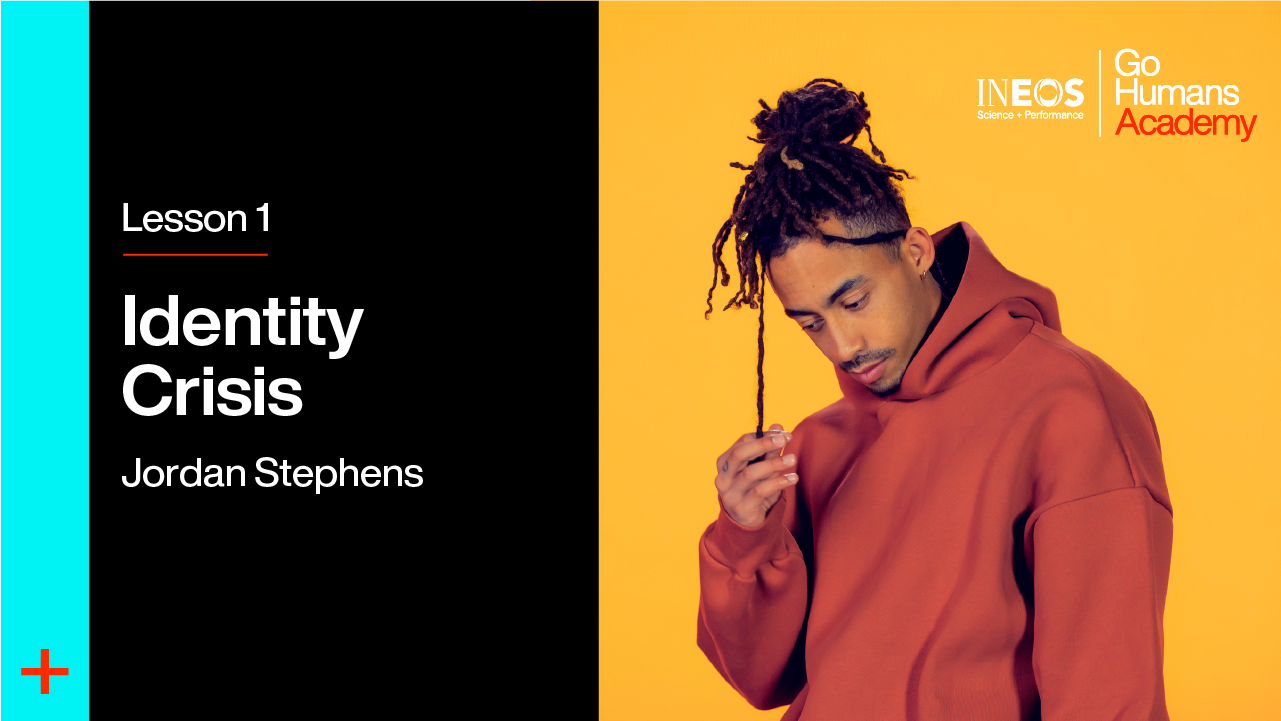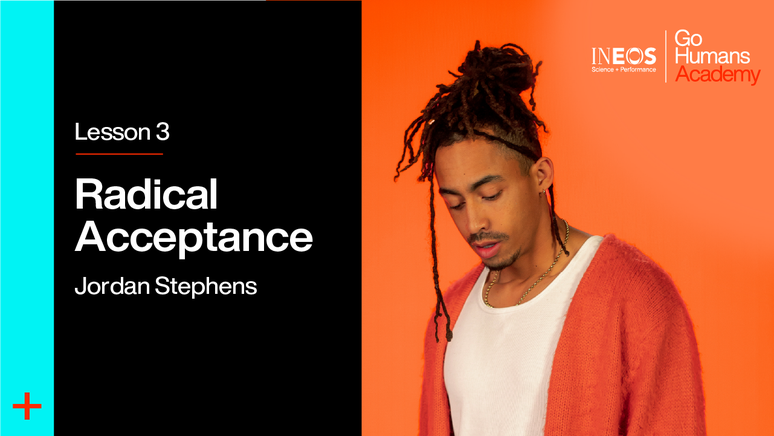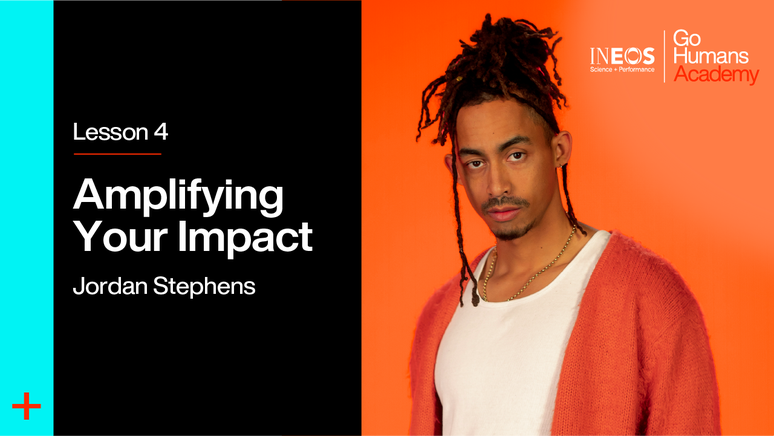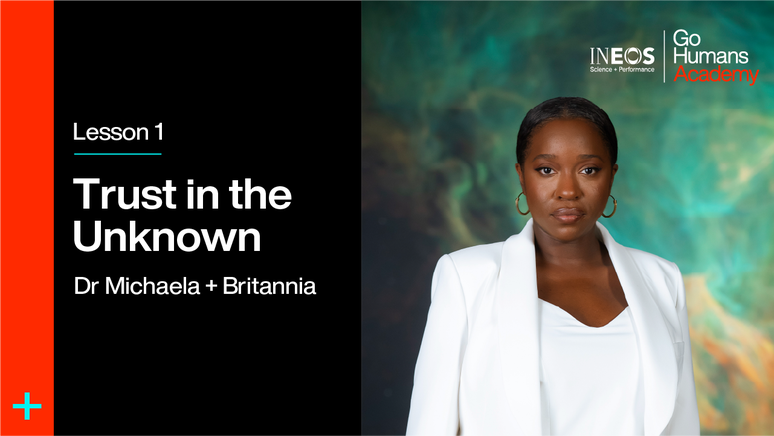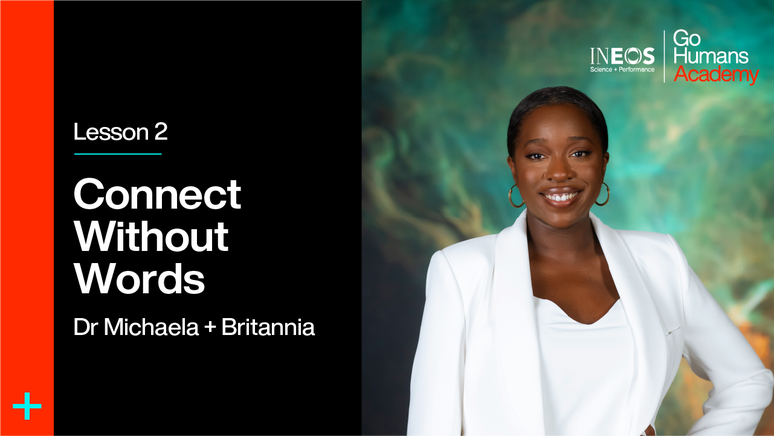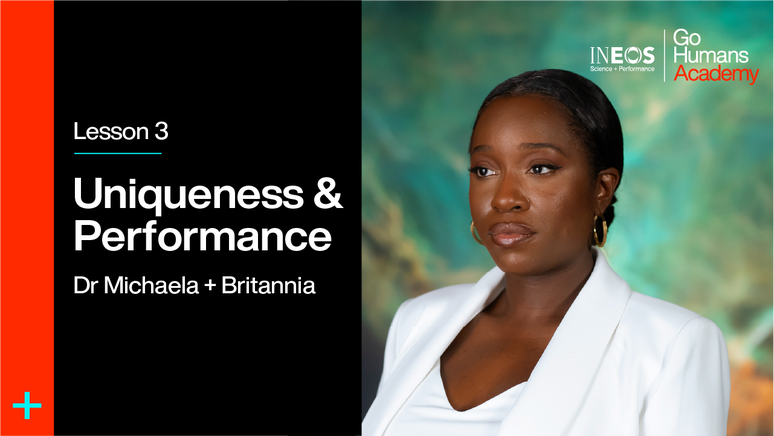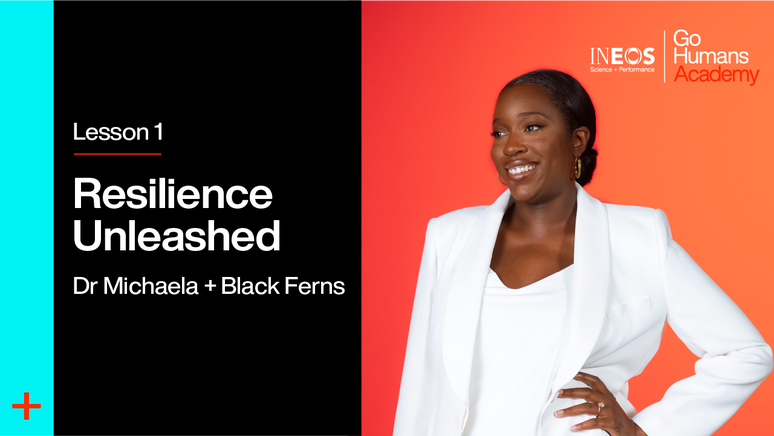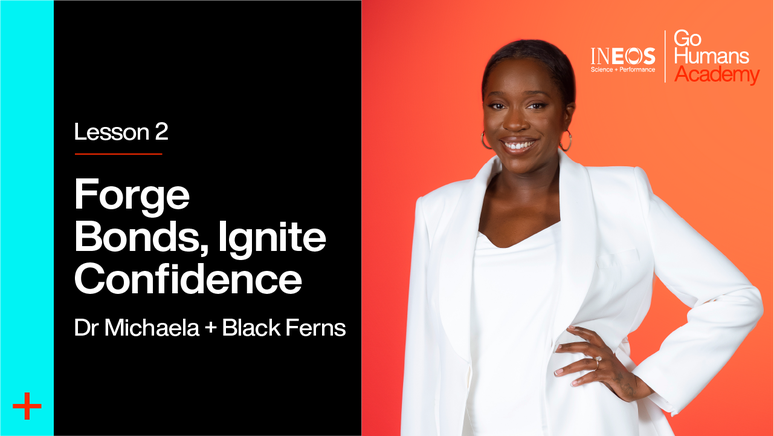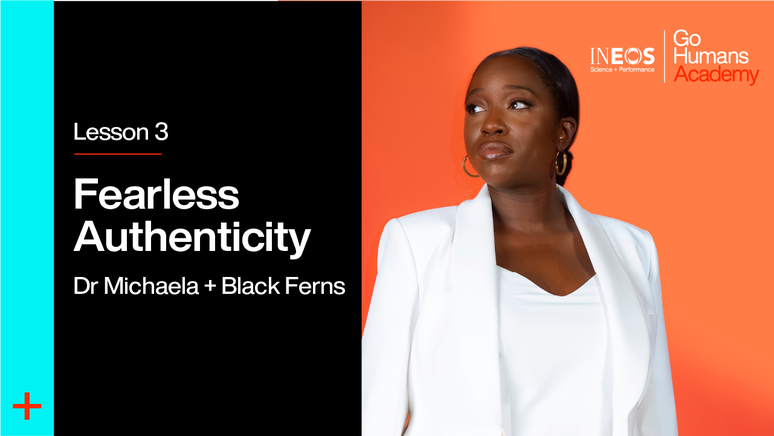Hi everyone, I'm Jordan Stevens, musician author and mental health advocate.
I'm working with INEOS Go Humans Academy to share with you my personal experiences and insights around a complex topic of identity and to explain some of the ways I've learned to better manage my mental health along the way.
Hopefully, you can learn something from our sessions and be able to build a better relationship with your own identity as we go along.
No matter how successful we are or might seem, we all face internal battles.
A lot of the time our problems can come from not really knowing who we are or what we stand for.
Some people might call this an identity crisis, but the reality is it's just part of being human because we all have egos and modern life is ridiculous.
But what does identity actually mean?
Psychologists tell us it's the perception you have about yourself, it's your values, your beliefs and how you think others see you.
A common mistake is thinking our identity is set in stone but it's not.
It shifts, it's fluid, it's changing as we move through life.
And if we base our identity on things like how others see us or money or stuff we own or even our social media profile, our identity is on shaky grounds.
We're assigning too much power externally and it can therefore be taken away from us.
Creating a solid foundation for our identity is built without any of that.
It starts with treating ourselves well, listening to our positive thoughts and building authentic relationships with people around us.
You might think it's strange but I've had this habit of changing my name throughout my life.
I've had around five or six aliases or different names at a time, genuinely.
Like I've been unable to collect stuff from the post office because I've used a random name and I've got no proof, it's long.
If I think about why I've done this, I reckon it's something like I'm not letting others dictate who I am by fracturing my sense of self.
But I guess I was too scared to commit to being one thing or one person in case I felt rejected.
I'd been placing my identity into the hands of others and worrying too much about what they might think of me.
So it became a defence mechanism to hide behind a variety of different names.
Placing that power into other people's hands has been a real issue for me and it can be incredibly irrational so let me give you another example.
There's one story when I had an argument with a friend, we're both passionate people and we had a trivial disagreement that became heated.
My more logical self-respecting self knows that my best friend wouldn't judge me for having a clash of opinions.
However, I've got a little me, and in a child who I need to parent sometimes, who's had a tough time with abandonment issues throughout life and I began to overthink the conversation we'd had.
I started to think that maybe this person didn't appreciate my opinion and because of that, they'd never be my friend again.
In the past, a simple incident like this might have led to me resorting to harmful behaviour like drinking or self-medicating just to get through the uncomfortable emotions.
However, nowadays I'm in a slightly more conscious space, I'm a bit more aware of my triggers and even though the negative thoughts don't disappear completely, I try and respond differently to the situation because I'm aware that it's not always my rational brain that's acting.
And after the argument, I understood that I had to monitor myself and not place my identity or personal value with the opinions of an imaginary version of my friend.
So, where do we begin?
Here are some tips to get yourself better acquainted with your own identity.
- Identity Acknowledgement. Spend five minutes without unavoidable distractions thinking about you as a person, what do you value, what do you believe in and what do you want in life. How would you describe yourself to other people without getting into what you look like?
- Dialogue Recognition. It might seem simple but practice speaking kindly to yourself. Be more conscious of your strengths, your accomplishments and the values that you set apart from others.
- Mindfulness. This is an easy one before bed or first thing in the morning, you can download a mindfulness app on your phone, they're free, easy to use and they provide you with short exercises to help you stay connected to yourself and your feelings rather than just storing them away.
- Self-Parenting. Taking care of your physical health can also support your mental health.
Look out for yourself like you were entrusted with looking after a friend in need.
Make sure you get enough sleep, eat the best you can and take time to stay active, literally, just go for a walk, it will change your life.
Most importantly, remember to seek professional help if you need it.
If you're struggling, don't hesitate to reach out to a mental health professional.
They can provide immediate support to help you navigate your feelings and develop a stronger sense of self.
Don't forget to continue our sessions in the link below or join the conversation using #GoHumansAcademy and head to ineoshygienics.com for more information and mental health resources.
